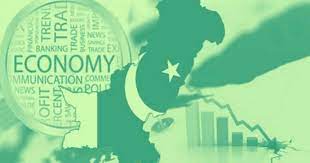The people of Pakistan survived shock after shock and punch trailed by a punch in recent days after the caretaker setup assumed charge of the government in mid-August. The headline inflation has made new records, the dollar touched new heights, and the electricity rate and monthly bills brought a calamitous fate that had not ever been seen by the public in the country’s history.
The self-elected leaders imposed another catastrophe on the poor masses by slapping unbelievable increases in the prices of Petroleum products. The incumbent government raised the petrol price by Rs 26.02 per litre and high-speed diesel by Rs 17.34 per litre in a single sprint. The finance division told the masses that prices of petrol and high-speed diesel were raised because petroleum prices in the international market had increased during the last fortnight.
This was the straight third increase in a single month that took a jump in petrol prices from Rs. 272.95 per litre to 331.38 per litre, while High-Speed Diesel (HSD) rates appreciated from Rs. 273.40 per litre to Rs. 329.18 per litre respectively. The inflation stayed high at 27.4% in the previous month, while these numbers significantly rose in the past weeks because of a continuous decline in currency rate, high energy bills and the implementation of so-called economic reforms that the previous government agreed with the IMF to unseal $ 3 billion bailout package with the global lender.
The PSB data for August revealed that there had been a slight decrease in inflation as compared with July but prices of essential foodstuffs stood elevated at 38.5%, which made this period unbearable for the 241 million populace in the country. That price hike seriously hurts all segments of society and equally affects the prices and availability of all daily use commodities, transport fares, tuition fees, essential medicines, healthcare expenses etc.
The crises of hefty electricity bills had not been resolved so far that the unelected leaders came up with petrol bombs to test the patience and resilience of this nation. Amid the high cost of living together with unlivable conditions, the caretaker Finance Minister, along with the Information Minister and Minister for Petroleum appeared before the media to inform the nation about improving macroeconomic indicators that predict stable agriculture and consolidating industry in the coming months. The trio leaders noted that the country has come out of the difficult situation and the economy will grow soon. Like the previous government, interim leaders claimed premature credit for the magnificent revolution that might fall in the future.
Realistically, the Pakistani leaders had excelled in butcher work of governance on the costs of public lives, comforts and well-being. Our leaders are well versed in the tact of grabbing funds and weighing a theft on public pockets through artificial price hikes, raising tariffs and illegal taxation on consumers and the general public. No other nation in the region has witnessed such price hikes as the Pakistani nation suffering these days.
Yesterday, one litre of petrol was sold at the price of Rs. 96.72 in India, for 64 Afghani in Kabul, and the same precious commodity was available for 125 Tekkas in Bangladesh. Why were all necessities of life so dearer in Pakistan? Currently, an average Pakistani family spends about 80% of its monthly income on school fees and utility bills with a little left for household effects, kitchen heating and healthcare.
The skyrocketing inflation has pushed almost 60% of the population below the poverty line, begging and the crime rate has exceeded all estimates. The Pakistani leaders mu have changed their style of governance as the situation has reached an irreversible point. The rulers must spare some time to think over such public issues that have made the people’s lives miserable and caused serious grievances against their leadership and the country. If those grievances were not addressed timely public anger could break out any time in the future and that movement would be equally disastrous for all.







